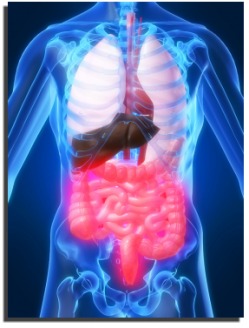Irritable Bowel Syndrome - Some Things That You Need to Know

When we talk about irritable bowel syndrome, it generally refers to the common problem that affects the gastrointestinal system or the digestive system. It has other names specifically irritable colon, mucous colitis, and spastic colon. Actually, this condition is considered as a chronic and intermittent condition.
IBS is characterized by abdominal pains and disturbed bowel movements but without any presence of abnormalities in the tissues of the digestive system. Thus, this is considered as a collection of symptoms rather than a single particular disease. Because of the presence of numerous symptoms, this condition can only be diagnosed once the other diseases have been ruled out such as gastroenteritis, or inflammatory bowel disease.
IBS is idiopathic in cause, which means, there are no known reasons why the disease occurred. A lot of patients who have irritable bowel syndrome do not know why they had the disease. On the other hand, there are some patients who have irritable bowel syndrome that also have psychiatric symptoms and stress. Emotional states can affect the function of the digestive tract and IBS is a symptom of depression in some people. Aside from that, IBS may also be caused by abnormal function of the muscles of the intestine, which may occur spontaneously or be triggered by stress.
As mentioned earlier, irritable bowel syndrome is a relapsing and remitting condition. This means that the symptoms may be felt again even after it has subsided for quite some time. The most common problem experienced with irritable bowel syndrome is that patients would frequently pass out small stools, alternating with some periods of constipation. There are also some cases wherein people would feel that they have not completely emptied their bowel. Sometimes other symptoms such as crampy abdominal pains, excessive flatulence, bloating, passage of mucus with stools.
If these symptoms are present yet there is also presence of blood in the stool, the condition may not just be plain IBS. If there is blood in the stool, consultation to the physician is required.
Hair Loss Information
IBS is characterized by abdominal pains and disturbed bowel movements but without any presence of abnormalities in the tissues of the digestive system. Thus, this is considered as a collection of symptoms rather than a single particular disease. Because of the presence of numerous symptoms, this condition can only be diagnosed once the other diseases have been ruled out such as gastroenteritis, or inflammatory bowel disease.
IBS is idiopathic in cause, which means, there are no known reasons why the disease occurred. A lot of patients who have irritable bowel syndrome do not know why they had the disease. On the other hand, there are some patients who have irritable bowel syndrome that also have psychiatric symptoms and stress. Emotional states can affect the function of the digestive tract and IBS is a symptom of depression in some people. Aside from that, IBS may also be caused by abnormal function of the muscles of the intestine, which may occur spontaneously or be triggered by stress.
As mentioned earlier, irritable bowel syndrome is a relapsing and remitting condition. This means that the symptoms may be felt again even after it has subsided for quite some time. The most common problem experienced with irritable bowel syndrome is that patients would frequently pass out small stools, alternating with some periods of constipation. There are also some cases wherein people would feel that they have not completely emptied their bowel. Sometimes other symptoms such as crampy abdominal pains, excessive flatulence, bloating, passage of mucus with stools.
If these symptoms are present yet there is also presence of blood in the stool, the condition may not just be plain IBS. If there is blood in the stool, consultation to the physician is required.
Hair Loss Information
